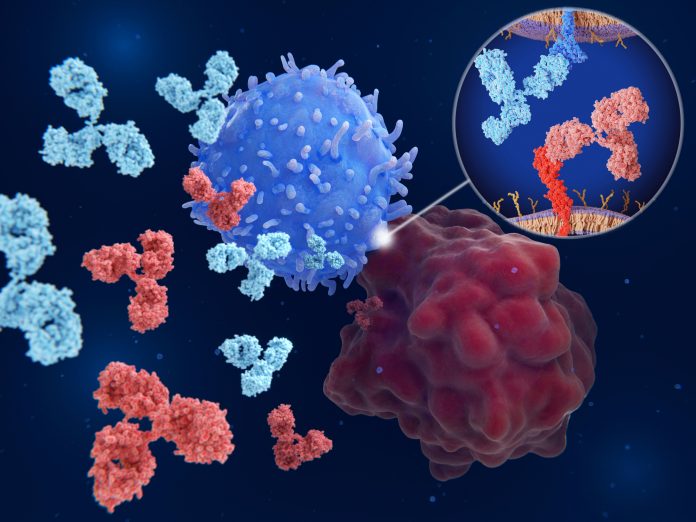
A team of researchers from USC Norris Comprehensive Cancer Center have identified a new biomarker that shows which patients with non-small cell lung cancer (NSCLC) will respond well to chemoimmunotherapy. The biomarker, CX3CR1, can be detected with simple blood test six to nine weeks after a patient has begun their therapy regimen.
“We found that T-cell CX3CR1 expression can be used to monitor treatment effectiveness, and can be used as a biomarker to predict treatment response and prognosis for these patients,” said Fumito Ito, MD, PhD, associate professor of surgery at the Keck School of Medicine of USC and lead author of the study, published in the journal Cancer Research Communications.
The new findings represent a continuation of work from Ito and team, which found that CX3CR1 could also be used to predict NSCLC patient response to immunotherapy only. The potential remains that the biomarker could also be used for other cancers to help determine the treatment response of patients.
For the new study, the Ito, who is also co-leader of the Translational and Clinical Science Research program at the USC Norris Cancer Center, collected a series of blood samples from 29 patients with NSCLC who had received a combination of and immune checkpoint inhibitor and chemotherapy. Patient’s whose blood tests after six to nine weeks showed elevated levels of CX3CR1 were more likely derive long-term benefits from the combination therapy, which included tumor shrinkage and remission.
While determining which patients will respond well—and without side effects—to an ICI therapy before it is administered remains a goal, efforts to date have not produced a reliable test. CX3CR1 doesn’t provide a pre-treatment answer, but its presence shortly after treatment begins can be used when patient attend their first imaging appointment to monitor their disease about two months later.
“If ICI is not working, we like to stop as soon as possible,” Ito said. “We have other viable treatment options for NSCLC patients, so the biomarker can help us identify patients who might have better results with an alternative therapy.”
The USC researchers also see the potential for CX3CR1 for use to monitor patient treatment response in other cancers, since it measures the activity of the immune system and not the tumor tissue of origin. The team also intends to see whether it is a reliable biomarker for other kinds of immunotherapies such as vaccine-based therapies.
Next steps are to test the biomarker in a larger cohort of patients to provide additional evidence of the utility of CX3CR1 as a biomarker in NSCLC for patients undergoing immune checkpoint inhibitor therapy both alone and in combination with chemotherapy. If this research strength the evidence for the use of CX3CR1 as a reliable biomarker, Ito said a blood test could be available within two to three years.













